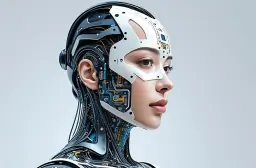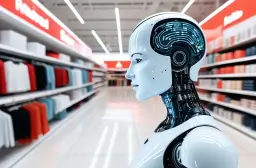AI in Everyday Life: Transforming Ordinary Tasks
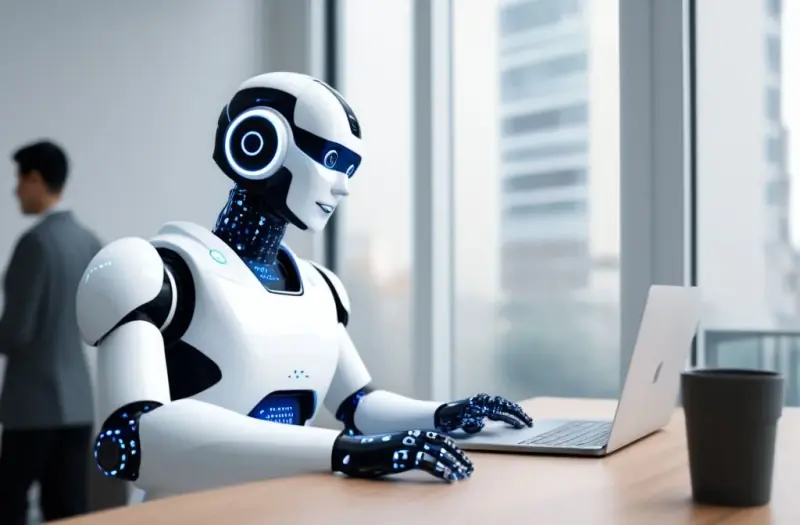
Table of Contents
Artificial Intelligence (AI) is no longer a concept confined to science fiction or high-tech laboratories. Today, AI is woven into the fabric of our everyday lives, subtly transforming the way we perform ordinary tasks. From the moment we wake up to the time we go to bed, AI plays a pivotal role in enhancing our daily experiences, making life more convenient, efficient, and even enjoyable.
Understanding AI in Daily Activities
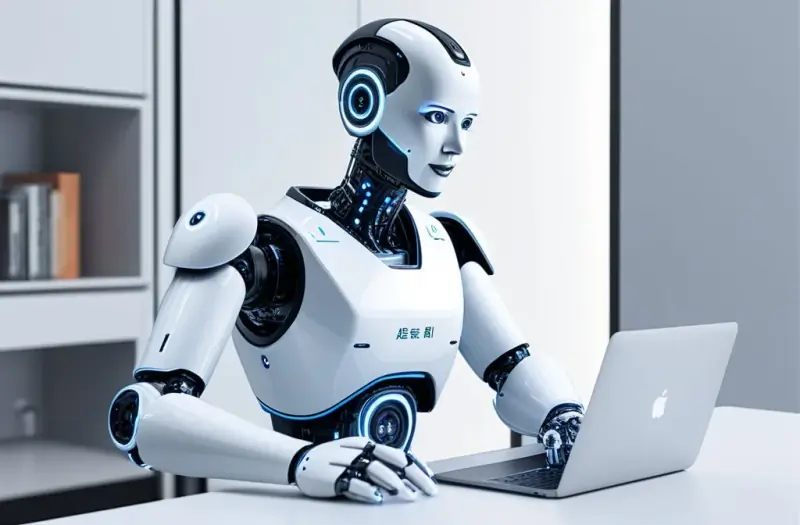
AI is an umbrella term that encompasses various technologies designed to simulate human intelligence. Machine learning, natural language processing, and smart algorithms are just a few examples of how AI works behind the scenes to optimize our day-to-day routines. But how exactly does this technology impact our daily lives?
Everyday AI applications are often so seamlessly integrated that we might not even realize we’re using them. Whether it’s the voice-activated assistant on our smartphones or the smart thermostat that adjusts our home’s temperature, AI has become an indispensable part of our lives.
The Morning Routine: AI in Personal Technology
Our mornings are a prime example of how AI has infiltrated daily activities. The moment we turn off our alarm, which might have been set by our AI-powered voice assistant, we’re engaging with technology designed to make our lives easier.
- Smart alarms adjust based on your sleep cycle, waking you up at the optimal time.
- AI-powered coffee machines brew your favorite cup just the way you like it.
- Voice assistants like Siri, Alexa, or Google Assistant can provide a rundown of your schedule, weather updates, and even control other smart devices in your home.
These intelligent systems in everyday life are designed to streamline your morning, saving you precious time and helping you start the day on the right foot.
Navigating the Day: AI in Common Tasks
As we move through the day, AI continues to play a crucial role in enhancing our routine tasks. Whether at work, at home, or on the go, AI-powered tools are there to assist.
Email filtering, for example, uses machine learning to sort through your inbox, prioritizing important messages and sending spam to the trash. Similarly, AI in daily operations at work can automate repetitive tasks, like data entry or scheduling, allowing us to focus on more meaningful work.
For those who work from home, AI-driven daily life enhancements include tools that monitor productivity, suggest optimal break times, and even provide personalized playlists to help you concentrate better.
AI in Consumer Technology: Enhancing Everyday Experiences
Consumer technology is another area where AI shines. Smart home devices, such as smart thermostats, lights, and security systems, learn your habits over time and adjust accordingly. These AI integration in daily routines not only adds convenience but also helps save energy and reduce costs.
Moreover, AI in personal technology extends to our entertainment systems. Streaming services like Netflix or Spotify use AI algorithms to recommend shows, movies, or music based on your preferences. These intelligent systems in everyday life ensure that you always have something enjoyable to watch or listen to, tailored just for you.
Driving into the Future: AI in Transportation
AI is revolutionizing the way we think about transportation. Self-driving cars are no longer a distant dream but a rapidly advancing reality. These vehicles use AI to navigate roads, avoid obstacles, and make real-time decisions that were once solely the domain of human drivers.
But even if you’re not in the market for a self-driving car, AI is already helping you get from point A to point B more efficiently. Navigation apps like Google Maps or Waze use machine learning to analyze traffic patterns and suggest the quickest routes, saving you time and reducing stress.
AI in Healthcare: Everyday Applications for Well-being
Healthcare is another sector where AI is making significant strides, even in our daily lives. From AI-powered fitness trackers that monitor our health metrics to virtual health assistants that offer medical advice based on symptoms, AI is helping us take charge of our well-being.
For instance, smart systems in daily activities like meal planning or exercise routines can suggest personalized plans based on your health data. These everyday AI applications are designed to help you live a healthier, more balanced life.
Shopping and Retail: AI in Consumer Experiences
Shopping has been transformed by AI, both online and in-store. Personalized recommendations, powered by machine learning, ensure that the products you see are tailored to your tastes and preferences. This makes the shopping experience more enjoyable and efficient.
AI-driven chatbots also enhance customer service by providing instant responses to queries, helping you find what you need faster. These AI in everyday experiences ensure that your interactions with brands are smooth and satisfying.
AI in Home Maintenance: Making Life Easier
Maintaining a home can be time-consuming, but AI is here to help. Robotic vacuum cleaners, for example, use AI to navigate your home and clean floors with minimal effort on your part. Smart appliances, such as refrigerators that track food inventory or washing machines that adjust settings based on load type, make household chores less of a burden.
These everyday machine learning solutions free up time for more important activities, allowing you to spend less time on mundane tasks and more time on what matters.
Entertainment and Leisure: AI-Powered Enjoyment
When it’s time to unwind, AI is there to enhance your entertainment. Video games now use AI to create more realistic and adaptive gameplay, while AI-powered content generation allows for more personalized and immersive experiences in virtual reality.
Even in sports and fitness, AI in routine tasks like tracking performance metrics or suggesting workout routines is making leisure activities more enjoyable and effective.
AI and Social Media: Connecting the World
Social media platforms rely heavily on AI to curate content, target ads, and even moderate user behavior. AI integration in daily routines means that the content you see on your feed is specifically tailored to your interests, making your social media experience more engaging.
Moreover, AI in machine intelligence in daily life helps in identifying harmful content or fake news, ensuring that the information you consume is more reliable and safe.
AI in Education: Learning Made Smarter
Education is another area where AI is making a significant impact. Adaptive learning platforms use AI to personalize the educational experience, adjusting the difficulty of tasks based on the learner’s performance.
AI-driven tools can also assist in grading, providing feedback, and even identifying areas where students may need extra help. These smart systems in daily activities are transforming the way we learn, making education more accessible and effective.
AI in Financial Management: Keeping Your Finances in Check
Managing finances can be challenging, but AI is making it easier. AI-powered budgeting apps analyze your spending habits and provide insights on how to save money. Automated investment platforms use machine learning to suggest investment strategies based on your financial goals and risk tolerance.
These everyday AI advancements in financial management ensure that your money is working as hard as you are.
Frequently Asked Questions (FAQs)
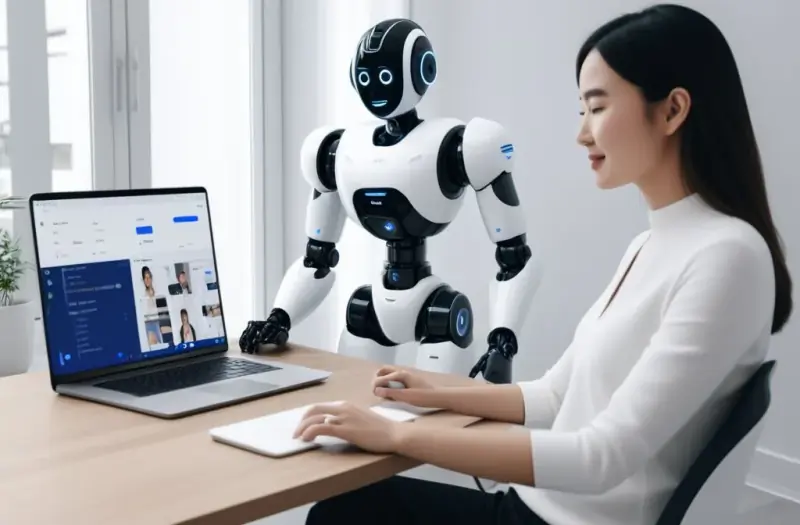
What is AI in daily activities?
AI in daily activities refers to the integration of artificial intelligence technologies into our everyday tasks, such as using smart devices, navigating traffic, or managing finances, to make these tasks more efficient and convenient.
How does AI impact routine tasks?
AI impacts routine tasks by automating repetitive processes, providing personalized recommendations, and making real-time decisions, thereby saving time and improving efficiency.
Can AI be used for personal technology?
Yes, AI is extensively used in personal technology, including smart home devices, voice assistants, and personalized entertainment systems, enhancing our daily experiences.
Is AI safe to use in everyday life?
Generally, AI is safe to use in everyday life as long as it’s implemented with proper security measures and ethical considerations. However, it’s essential to stay informed about potential risks, such as data privacy concerns.
How is AI used in consumer technology?
AI is used in consumer technology to personalize user experiences, automate home systems, enhance entertainment, and improve customer service, making daily interactions more efficient and enjoyable.
Conclusion
AI has become an integral part of our everyday lives, transforming ordinary tasks into more efficient, personalized, and enjoyable experiences. From the moment we wake up to the time we go to bed, artificial intelligence in daily life plays a crucial role in shaping our routines. As AI continues to evolve, its impact on our daily lives will only grow, bringing even more innovative solutions to everyday challenges.
Key Takeaways
- AI is seamlessly integrated into daily activities, making life more convenient and efficient.
- From personal technology to healthcare, AI enhances our day-to-day experiences.
- AI-powered tools in consumer technology, transportation, and financial management are transforming how we live.
- Staying informed about AI’s role in daily life ensures we can fully benefit from its advancements while being mindful of potential risks.
Popular Tags
ADS SPACE HERE
